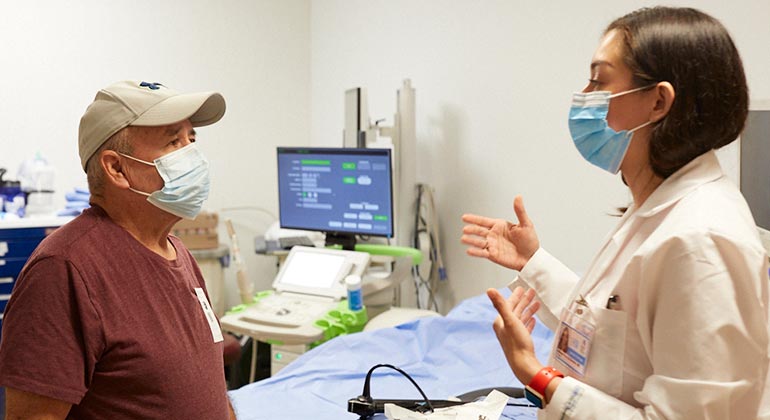Urology Clinical Trials at Mount Sinai

The Mount Sinai Health System is always working to improve patient care. We strive to develop new ways to prevent, diagnose, and treat urologic conditions. We study new approaches in our labs, and when they are promising—and receive institutional and governmental approval—we progress to the stage of clinical trials.
Clinical trials are research studies involving humans. The goal is to make sure new approaches are safe and effective. Most medicines and therapies that we use today were tested through clinical trials. At our Department of Urology, we are involved with many clinical trials.
Choosing to Participate in a Clinical Trial
Participating in a clinical trial is a personal decision. As with any health care decision, there are risks and benefits to participating in a clinical trial. Benefits include:
- Gaining access to investigational new treatments before they are widely available
- Receiving additional monitoring by doctors and other health care providers beyond that provided in standard care
- Helping future patients by contributing to medical research
- Accessing additional medical options when other therapies have not helped
- Having no out-of-pocket expenses. Generally, your insurance company or the research group pays for all health care costs.
It is up to you to decide if you want to join a clinical trial. Some patients talk with their doctors, family members, or friends about the advantages and risks. Remember, you can always change your mind and drop out of a study.
Types of Urology Clinical Trials
Mount Sinai’s Department of Urology is involved with a wide range of clinical trials. They address prevention, screening, treatment, and supportive and palliative care. Our researchers are studying a variety of conditions, including:
Prostate conditions
- Prostate cancer
- Benign prostate enlargement (BPE), also known as benign prostate hyperplasia (BPH)
- Transurethral resection of the prostate, treatment for BPE/BPH
- Laser photoselective vaporization of the prostate, treatment for BPE/BPH
Bladder conditions
- Bladder cancer
- Bladder ablation
Kidney conditions
- Kidney cancer
- Kidney stones
Erectile dysfunction
- Medical treatments
- Surgical treatments
Finding a Clinical Trial
If you decide to participate in a clinical trial, it’s important to know that not every clinical trial is right for every patient. You’ll want to explore your options. Each clinical trial has guidelines about who can join. These criteria can include things like condition stage of condition, and previous treatments.
Find the right trial for you:
Resources
To get more information about the trial, you have a few options:
- Go to national registry of clinical trials. Enter the NCT (National Clinical Trial) number into the “other” box on and search for your trial.
- Contact the researcher using the contact information on the Mount Sinai page. Keep the study title and NCT number handy so you can tell them which study you’re interested in.
As you research clinical trials, you might want to ask questions about:
- The purpose of the study
- Potential effectiveness of the treatment
- Possibility of receiving a placebo (ineffective treatment used in some types of studies)
- Tests and treatments involved in the study (including hospitalization), both types and frequency
- Possible risks, side effects, and benefits, compared with traditional treatment
- Length of the clinical trial
- Cost of treatment and related expenses
- Long-term follow-up care and observation
- Anticipated effects of the treatment